Blue Kochi Chrysanthemum Arabesque Design Katakuchi by Miyagawa Kosai
Blue Kochi Chrysanthemum Arabesque Design Katakuchi by Miyagawa Kosai
Couldn't load pickup availability
Height: 8.0cm Width: 9.0cm x 10.0cm
The "Blue Kochi Chrysanthemum Arabesque Design Katakuchi" is a masterpiece created by Miyagawa Kosai that embodies the traditions of Kyoto. This katakuchi is characterized by its deep blue "blue color" and has a beautifully painted "chrysanthemum arabesque design" on its surface. The chrysanthemum design has long been a symbol of "eternal youth and longevity" based on its efficacy as a medicinal herb, while the arabesque design symbolizes "longevity" and "prosperity" as its vines continue to grow without interruption. These auspicious designs were highly valued as wedding furnishings in the Edo period, and are still popular today for their good luck.
Characteristics and history of Katakuchi
Katakuchi is a traditional vessel with a spout on one side of the rim, and has been used in Japan since the Jomon and Yayoi periods. This shape is used especially for serving sake, and its wider opening compared to a tokkuri allows you to fully enjoy the aroma of the sake. Katakuchi can be used in a variety of ways, from ancient times to the present day, and has been used in a variety of ways at the dinner table and at tea ceremonies.
Technique and its development
"Koshi" is a technique that originated in Cochinchina, which refers to the area today known as Vietnam, and its name became widespread under the influence of the Chinese dynasty. This technique was later developed into Kyoto ware, and many tea utensils were produced, especially to meet the demand at tea ceremonies. In the "Blue Koshi Chrysanthemum Arabesque Pattern Katakuchi," the vivid blue of the blue is expressed using the Koshi technique, and the chrysanthemum arabesque pattern painted on top of it creates a beautiful contrast. This katakuchi, which combines the traditions of Kyoto ware with the Koshi technique, is highly regarded as a tea utensil, combining sophisticated beauty with practicality.
The Tradition and Beauty of Makuzu Ware
Makuzu ware is known for being particularly rich in techniques among Kyoto ware, encompassing a wide range of techniques such as overglaze painting, blue and white porcelain, iron painting, Kochi, and gold lining. The Miyagawa Kosai family boasts a history of approximately 330 years, during which time they have inherited techniques such as copying Ninsei and Kenzan, and have produced many pieces that are in keeping with the times. The "Blue Kochi Chrysanthemum Arabesque Design Katakuchi" is a piece that beautifully combines these techniques, and strongly reflects the diversity and tradition of Makuzu ware.
History of Miyagawa family pottery
The history of Miyagawa family pottery began around 1680, when the first generation Miyagawa Kobee Masakazu moved to Kyoto and began producing pottery. During its history, which dates back to the early Edo period, a wide variety of pottery was produced in keeping with the times. When sencha tea was popular, they produced sencha tea utensils, and when the tea ceremony was fashionable, they produced tea utensils, and this tradition continues to this day. Today, the Miyagawa Kosai family's works are highly regarded both at home and abroad, and they have many fans, especially in the United States, the United Kingdom, France, and China.
Domestic and international evaluation and future
The "Blue Kochi Chrysanthemum Arabesque Katakuchi" fascinates many people with its vivid colors and intricate patterns, and is a piece that embodies the techniques and traditions of Makuzu ware. This piece, which continues to be loved especially in the world of tea ceremony, also plays a role in conveying Japanese beauty to the world. It is expected that Makuzu ware pieces, which are imbued with the elegance and splendor of Kyoto, will continue to be highly acclaimed both at home and abroad, and that their charm will be conveyed to many people.
Share
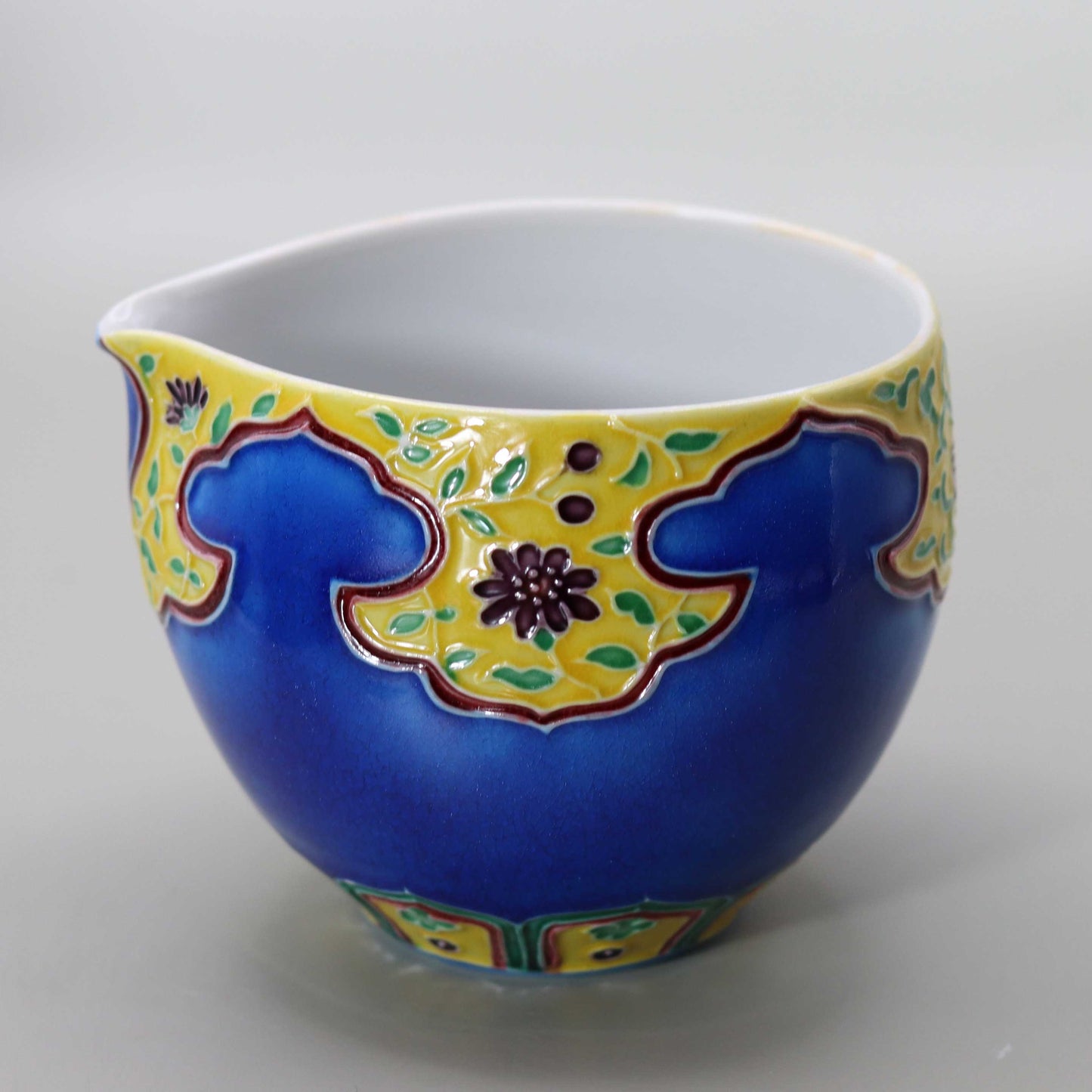
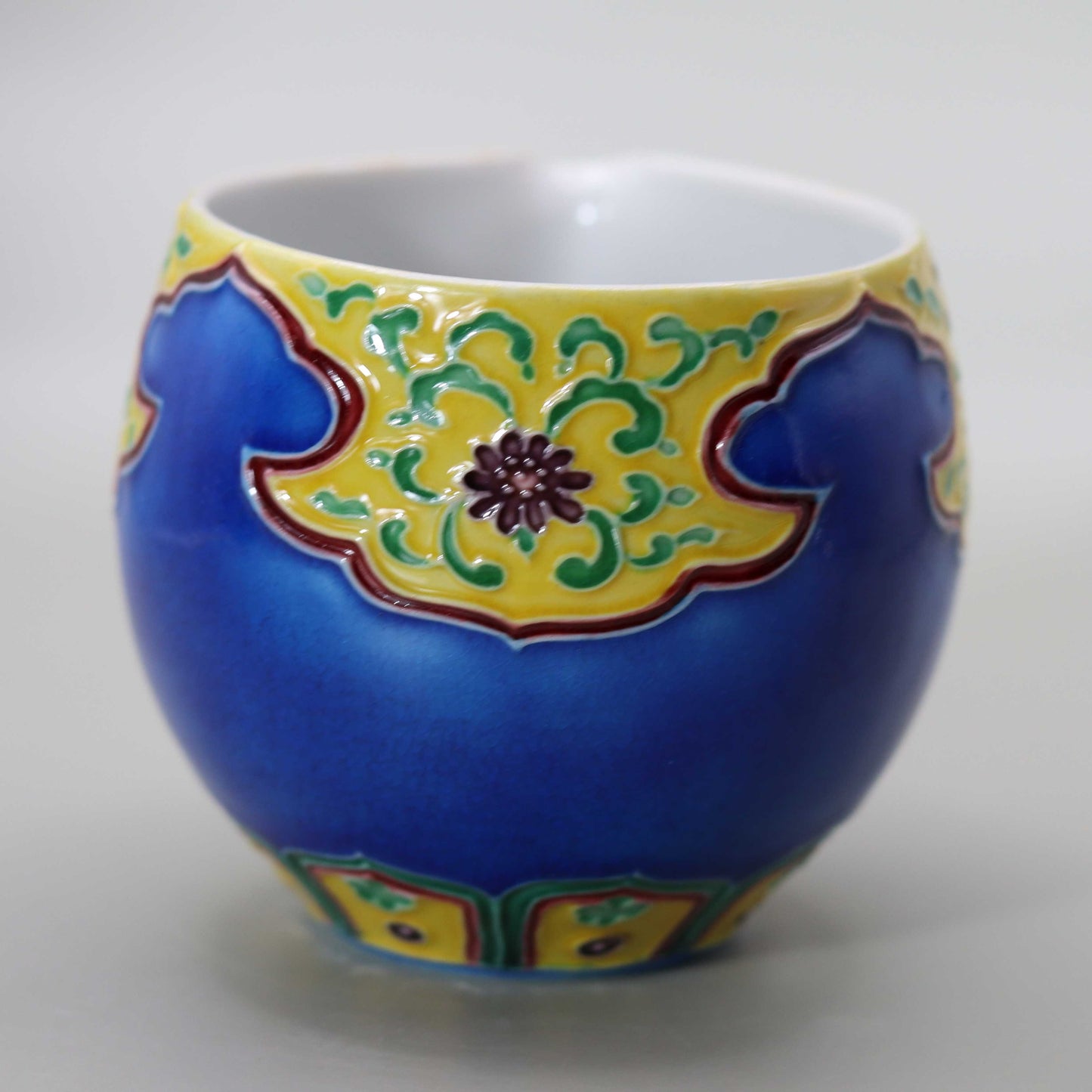
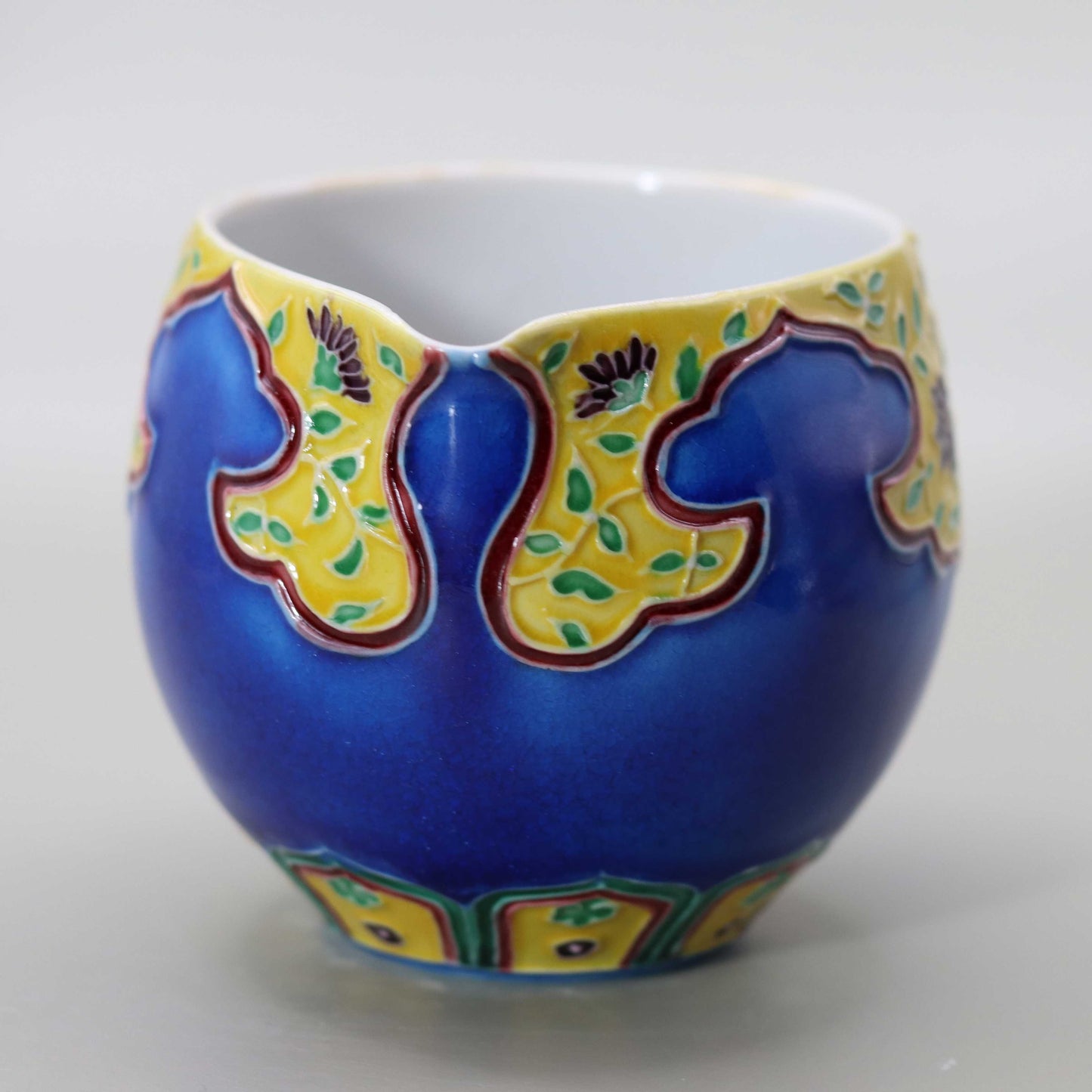
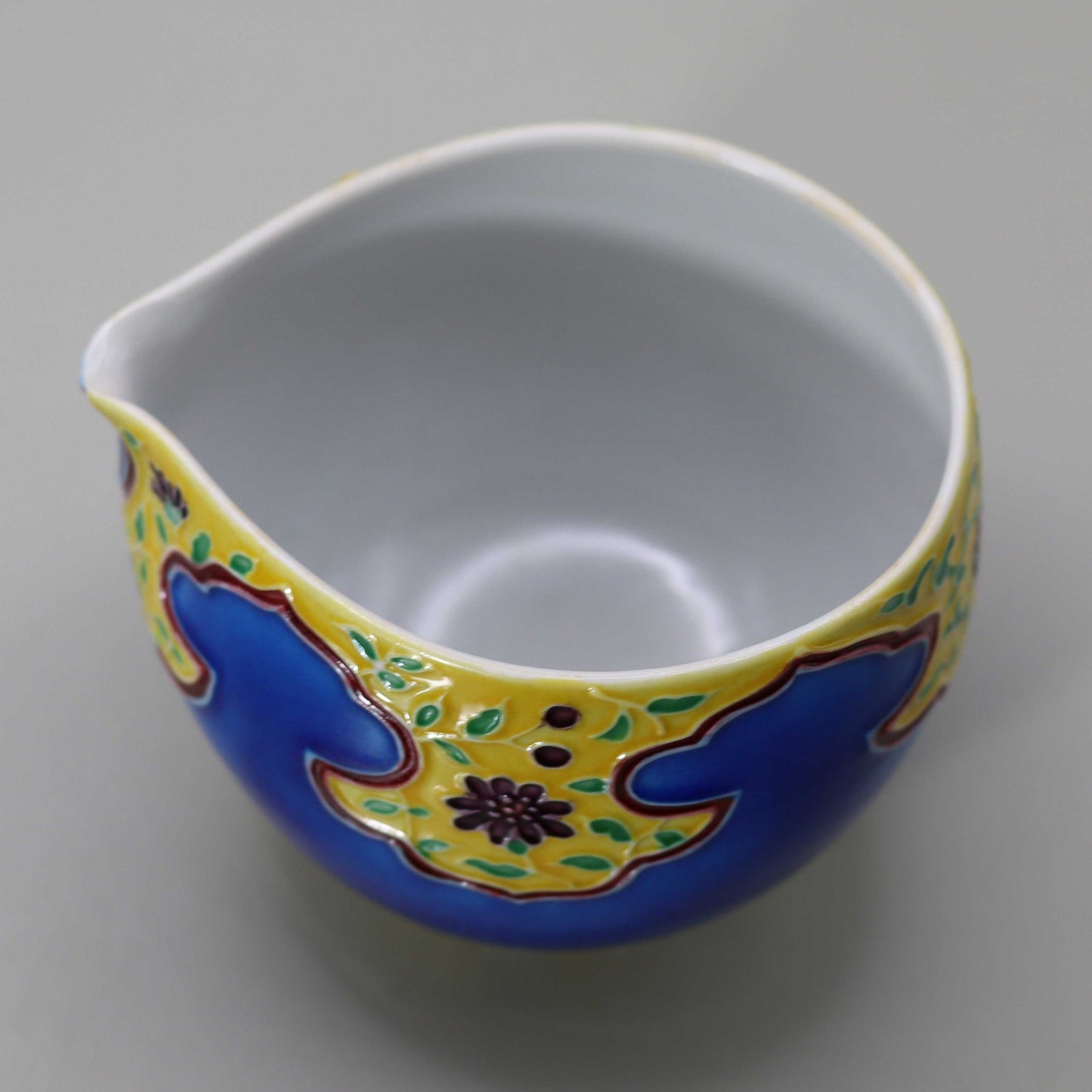
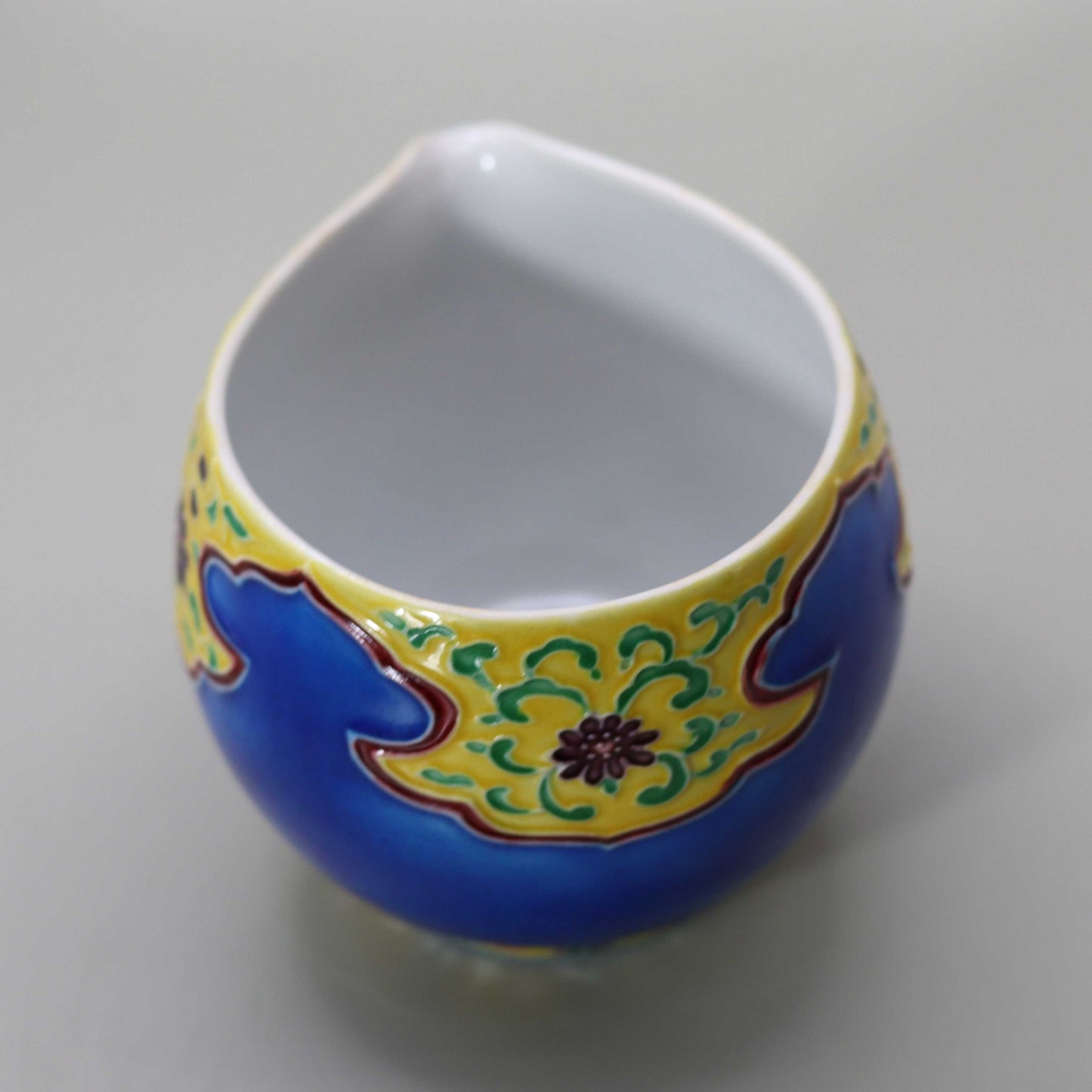
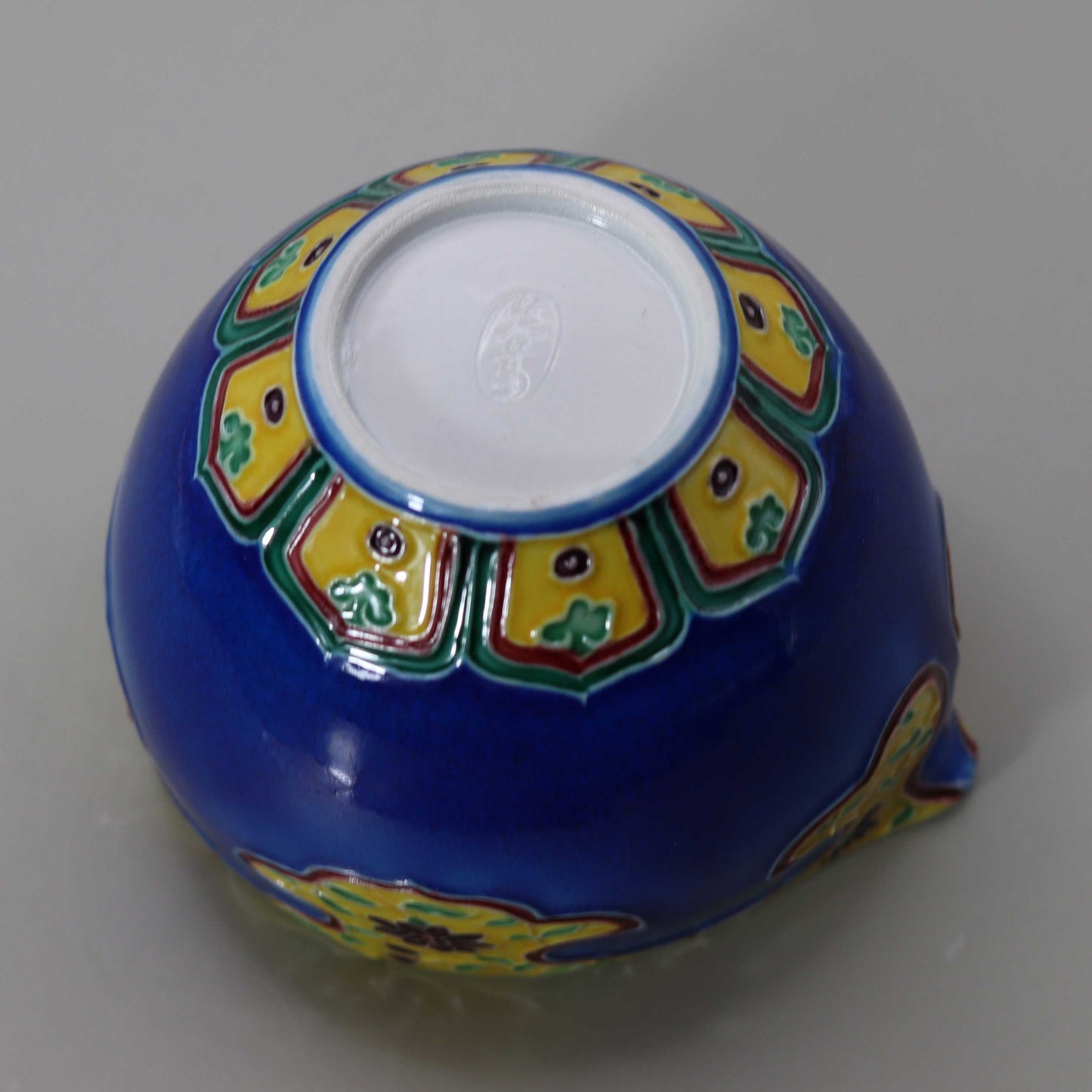
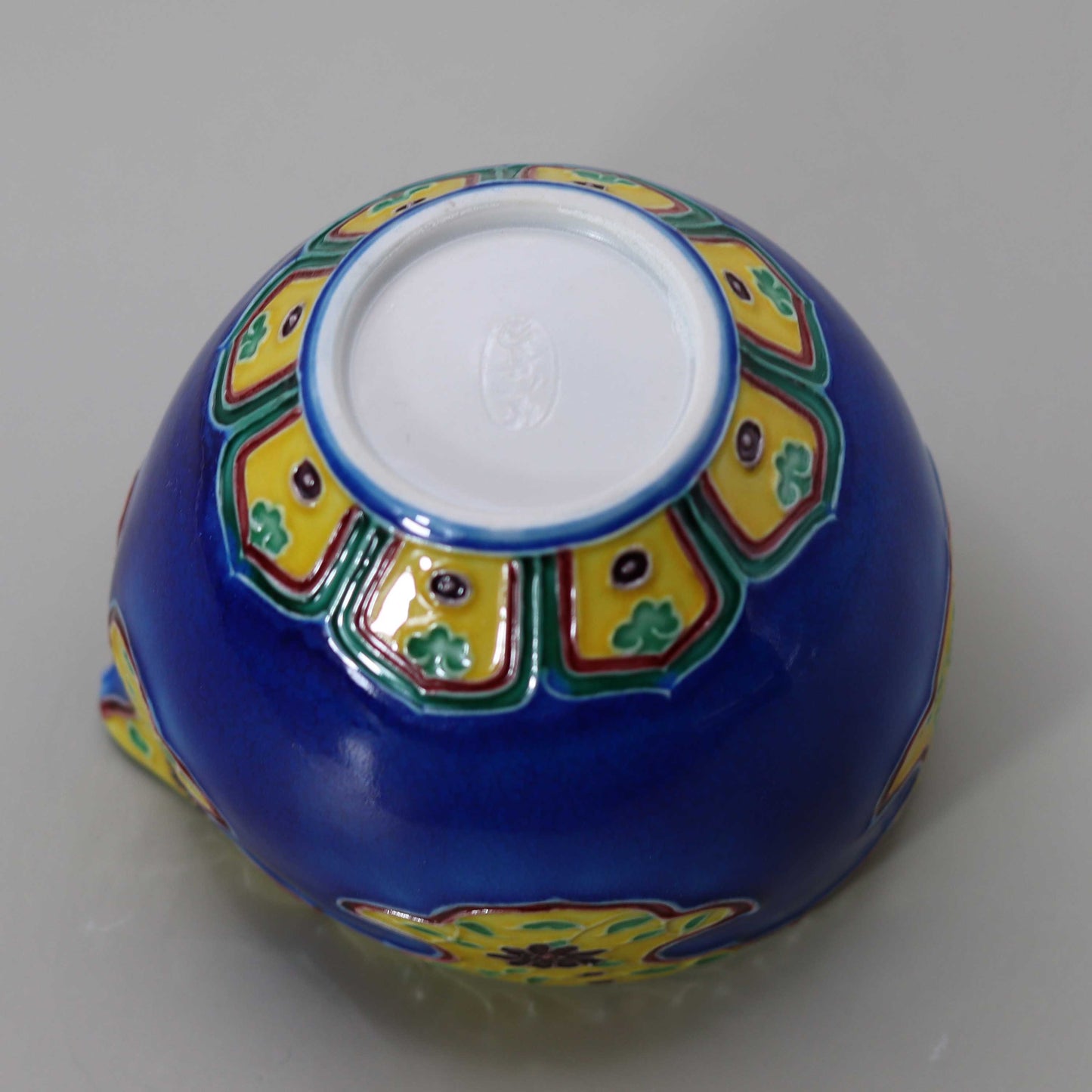
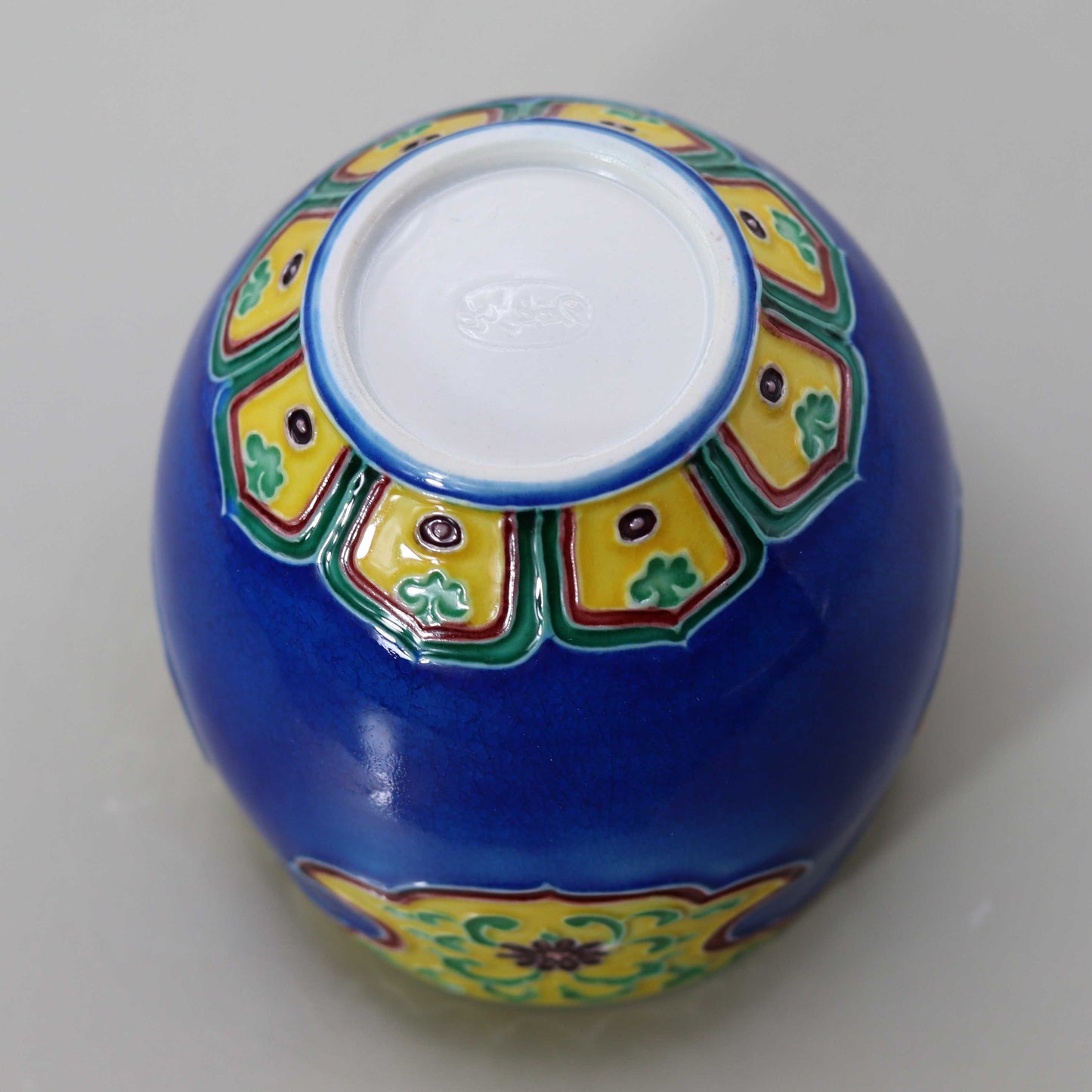
Multi-Column
-
[I will send it to you quickly and carefully]
We carefully package each product in a way that suits it best.
Also, delivery times vary depending on the piece (vessel, etc.).
Items that already come with a box will be shipped within 1-3 days of the order date.
For items that require a box to be made after your order, it will take approximately 30 days for production to be completed and then shipped.
In either case, once we have confirmed your order, we will contact you by email to inform you of the delivery date.
-
[Requests when purchasing pottery]
Even products that look the same may differ slightly in color, shape, size, etc.
The way the glaze is used, the power of the kiln, the firing method, the season, and the humidity also affect the appearance of the pottery.
Please understand the individuality of each piece of pottery and enjoy the unique warmth of handmade.








